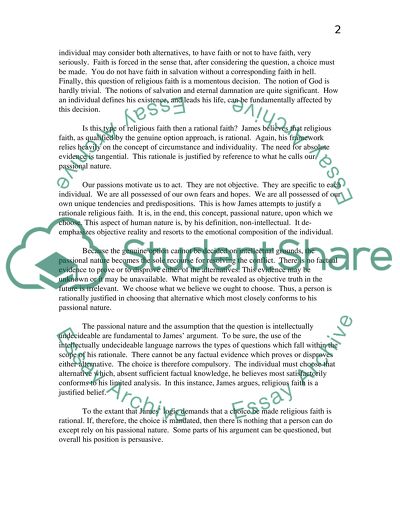Cite this document
(“William James, The Will to Believe Essay Example | Topics and Well Written Essays - 1500 words”, n.d.)
Retrieved from https://studentshare.org/miscellaneous/1511712-william-james-the-will-to-believe
Retrieved from https://studentshare.org/miscellaneous/1511712-william-james-the-will-to-believe
(William James, The Will to Believe Essay Example | Topics and Well Written Essays - 1500 Words)
https://studentshare.org/miscellaneous/1511712-william-james-the-will-to-believe.
https://studentshare.org/miscellaneous/1511712-william-james-the-will-to-believe.
“William James, The Will to Believe Essay Example | Topics and Well Written Essays - 1500 Words”, n.d. https://studentshare.org/miscellaneous/1511712-william-james-the-will-to-believe.


